Live online classes
October 2025
11 months | 2 weekly live class sessions
We prepare you for certification




Programme endorsed by Nebrija Institute from March 2025
Presentation of the curriculum, work tools, and how the programme and group operate.
Free access to further training
Our cybersecurity programmes are conducted in collaboration with Santander
Learn how to use industry-leading tools
9h.
Leveling Course
70h.
The current cybersecurity situation. What are the cyberthreats and how can they be dealt with?
Global Cybersecurity Panorama:
Cyberthreats:
Cybersecurity Management
75h.
Scripting, communication security and malware: What it is, how it works and life cycle.
Programming Concepts:::
Communication Protocols - TCP/IP:::
Malware:
75h.
Pentesting. Determining the techniques, procedures and tools used to identify vulnerabilities in networks and systems.
70h.
Designing and establishing plans to securely configure systems and networks. Understanding the standards and good practices within the sector
70h.
Discover standards and techniques to verify network and system security and ensure they are securely set up.
75h.
Developing cybersecurity incident response plans, using identification, containment, and recovery techniques.
75h.
Application of forensic analysis methodologies and tools characterizing the preservation, collection, analysis and documentation phases.
80h.
This final project of the Master’s puts the knowledge and skills acquired by students into practice by applying it to a real-world case and with data connected to the business world. It is a mandatory component within the scope of the final part of the study plan, and carried out under the supervision of an assigned tutor. Students must also undergo a viva voce exam of their capstone project.
Have you ever imagined being part of the giants of the tech industry? Do you want to become an expert in data analysis, capable of solving complex problems and making strategic decisions based on data? With this master's program, you'll experience an immersive educational journey and dive into the exciting world of Big Data and Artificial Intelligence.
Through a practical approach and based on storytelling, our program will allow you to test the knowledge you've acquired in a simulated professional environment.

 Career opportunities
Career opportunitiesCybersecurity analyst | Risk consultant | Cybersecurity consultant | Ethical hacker | Forensic analyst | Incident response specialist | Incident response specialist
CertificationsWith this programme you will acquire the necessary skills to work in a professional environment. In order for you to be able to demonstrate this, IMMUNE prepares you to be certified in:



The Máster en Ciberseguridad de IMMUNE Technology Institute es un programa intensivo y 100% práctico, diseñado para formar profesionales altamente cualificados en el ámbito de la IT security. El estudiante adquiere competencias técnicas en análisis de malware, ethical hacking, auditoría de sistemas, respuesta a incidentes, ciberinteligencia, análisis forense digital y bastionado de infraestructuras IT. Integra metodologías de aprendizaje como learning by doing, y Capture The Flag, replicando entornos reales de un SOC (Security Operations Center).
Además, prepara para certificaciones reconocidas internacionalmente como Cisco CCST Cybersecurity, Microsoft SC-900, y IT Specialist.
El máster también incluye fundamentos de criptografía aplicada, normativas de cumplimiento como ISO 27001 y legislación en ciberseguridad. Gracias a su modalidad online en directo y su enfoque técnico-profesional, este máster en ciberseguridad es ideal para perfiles que desean acceder o consolidarse como analistas SOC, pentesters, consultores GRC o arquitectos de seguridad.
The comprehensive training we deliver to our students thoroughly prepares them for the employment market. Through a personalized syllabus, we help them develop professional skills, establish relationships with companies and sail through recruitment processes.
In all our content, we include a percentage of Human Sciences to connect technology with soft skills.
It focuses on the practical application of knowledge and skills to foster meaningful and lasting learning.


Do you have a cybersecurity-related project that you would like to develop? Have you identified a cybersecurity need? Do you need funding to launch your company? IMMUNE, in collaboration with INCIBE, is developing the CYBERTALENT program, a three-year plan to promote cybersecurity entrepreneurship in Spain.



This questionnaire will allow us to get to know your profile in depth and ensure that this course is perfectly suited to your level of knowledge and expectations, guaranteeing that you get the most out of our program.
The test is completely online, requires no prior preparation, and will take no more than 25 minutes.

If you pay in one instalment you will benefit from a 20% discount.
Pay in installments, even if you are unemployed and cannot guarantee the loan.
Pay in installments, even if you are unemployed and cannot guarantee the loan.
Pay for your training through the Spanish Employment Training Foundation. Aimed at active workers who wish to finance their program through the subsidized training program.
Once you complete and pass the programme you will receive:
Non-regulated and non-official education. The degrees of this training are protected by the Organic Law on Universities.
Do you want to level up?
Do you want to stay in your field or sector, but you want to continue learning and explore new challenges? It's time to give your professional profile a boost and align it with the latest trends in technology.
Are you finishing your degree, and you want an upgrade in technology?
We love your profile, because you dare to dream. And in the professional world, fortune favors the bold. If you are an entrepreneur or freelancer, this program will help take your professional projects to the next level.
Want to change your professional career?
If you want your career to take a new direction and enter the world of tech with a bang, the program will help you specialize and shape your professional profile.
Are you an entrepreneur or freelancer?
This program will put you in the spotlight, as technology is the engine of innovation and the key to staying competitive in a constantly evolving market.
It is not necessary to demonstrate any prior training for admission, only to go through the admission process consisting of an evaluation of your resume and a personal interview with our admissions team.
The tools used throughout the program are licensed for free use, in some cases because we use educational licenses and in others because it is free software.
We have an employability area which, through our Talent Hub program, is responsible for supporting the efforts of our students to enter the employment market. The services we offer include resources to help you search for and prepare for interviews, English tests, resume and/or Linkedin profile guidance, interview and elevator pitch training, and access to our exclusive internship and employment pool.
You will need to have access to a laptop with a camera, microphone and minimum requirements of 8 GB of RAM and an i5 processor.
The final project is where everything you have learned throughout the program is applied and consolidated. You will present the project to a panel of professionals from companies in the sector, which represents a unique opportunity for students to demonstrate their knowledge to potential employers and also to network.
Yes, the program is delivered online with live classes. As such, you will be in direct contact and under the supervision of the teachers, which will enable you to follow the classes and interact in a flexible and natural way.
Yes, there are scholarships or study grants as well as financing options depending on students’ circumstances. Check out our scholarship and financing options.
Our students are characterized by their passion for technology. Our admissions process focuses on who you are, how you think, what you have accomplished, and then sharing your goals.
Our aim is to get to know you better, see what makes you unique and ensure that the IMMUNE educational model adapts to your profile.

1. Application

3. Academic committee

4. Enrollment

2. Personal interview
Designed to replicate an ecosystem of start-ups and tech companies, we’ve created a slice of Silicon Valley in the heart of Madrid.